
Vaduz: The Enchanting Capital of Liechtenstein
Nestled in the heart of Europe, Vaduz is the picturesque capital of the tiny principality of Liechtenstein. Though small in size, Vaduz is rich in history, culture, and natural beauty, making it a must-visit destination for any traveler exploring this part of the world. Begin your visit at the iconic Vaduz Castle, perched high above the city. This fairytale fortress is the residence of the Prince of Liechtenstein and offers breathtaking views of the Rhine Valley. While the castle is not open to the public, its exterior and the surrounding trails provide ample photo opportunities and a sense of the country's regal history. Art enthusiasts will be delighted by the Kunstmuseum Liechtenstein, which houses an impressive collection of modern and contemporary art. The museum's striking black cube design is an architectural highlight in itself. For those interested in local history, the National Museum offers fascinating exhibits on Liechtenstein's heritage, from ancient artifacts to contemporary culture. Stroll along the charming Städtle, Vaduz's main street, lined with cafes, boutiques, and galleries. Be sure to stop by the Postal Museum, where you can learn about the principality's renowned postal history and even see some rare stamps. If you're visiting during the summer, the open-air performances at the Vaduz Summer Festival are not to be missed. Nature lovers will find plenty to enjoy around Vaduz. The surrounding mountains and valleys offer excellent hiking and cycling trails, with panoramic views that are sure to leave a lasting impression. The nearby Rhine River also provides opportunities for leisurely walks or boat tours, allowing you to soak in the serene landscapes of this unique region.
Local tips in Vaduz
- Visit Vaduz Castle early in the morning to avoid crowds and get the best light for photographs.
- Take advantage of the Liechtenstein Museum and Adventure Pass for discounted entry to multiple attractions.
- Wear comfortable shoes as the city is best explored on foot.
- Try local cuisine at one of the traditional restaurants on Städtle.
- Check the local event calendar for festivals and cultural events happening during your visit.
Vaduz: The Enchanting Capital of Liechtenstein
Nestled in the heart of Europe, Vaduz is the picturesque capital of the tiny principality of Liechtenstein. Though small in size, Vaduz is rich in history, culture, and natural beauty, making it a must-visit destination for any traveler exploring this part of the world. Begin your visit at the iconic Vaduz Castle, perched high above the city. This fairytale fortress is the residence of the Prince of Liechtenstein and offers breathtaking views of the Rhine Valley. While the castle is not open to the public, its exterior and the surrounding trails provide ample photo opportunities and a sense of the country's regal history. Art enthusiasts will be delighted by the Kunstmuseum Liechtenstein, which houses an impressive collection of modern and contemporary art. The museum's striking black cube design is an architectural highlight in itself. For those interested in local history, the National Museum offers fascinating exhibits on Liechtenstein's heritage, from ancient artifacts to contemporary culture. Stroll along the charming Städtle, Vaduz's main street, lined with cafes, boutiques, and galleries. Be sure to stop by the Postal Museum, where you can learn about the principality's renowned postal history and even see some rare stamps. If you're visiting during the summer, the open-air performances at the Vaduz Summer Festival are not to be missed. Nature lovers will find plenty to enjoy around Vaduz. The surrounding mountains and valleys offer excellent hiking and cycling trails, with panoramic views that are sure to leave a lasting impression. The nearby Rhine River also provides opportunities for leisurely walks or boat tours, allowing you to soak in the serene landscapes of this unique region.
When is the best time to go to Vaduz?
Iconic landmarks you can’t miss
Vaduz Castle
Experience the stunning architecture and breathtaking views at Vaduz Castle, the emblematic residence of the Prince of Liechtenstein.
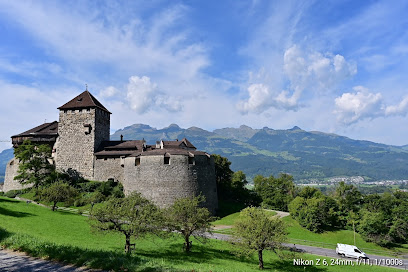
Burg Gutenberg
Discover the historic Burg Gutenberg in Balzers, a captivating venue for live music and cultural events, surrounded by breathtaking landscapes.
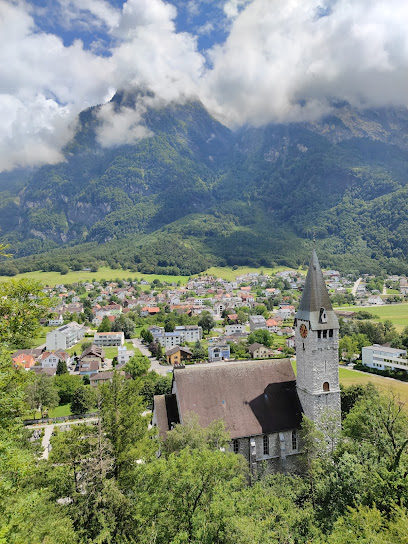
Kathedrale St. Florin
Explore the stunning St. Florin Cathedral in Vaduz, a neo-Gothic marvel blending spirituality, architecture, and rich cultural heritage.
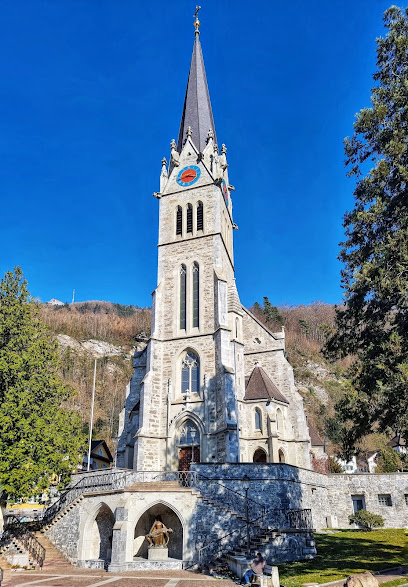
Liechtenstein Center
Explore the charm of Liechtenstein at the Liechtenstein Center, your gateway to this enchanting principality’s culture and attractions.
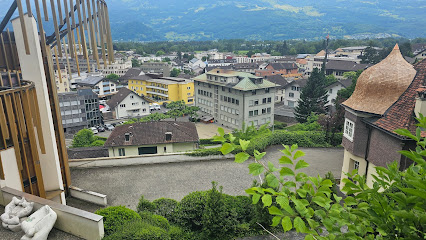
Vaduz Citytrain AG
Discover the beauty and history of Vaduz with Vaduz Citytrain AG, your gateway to scenic tours and cultural insights in Liechtenstein.
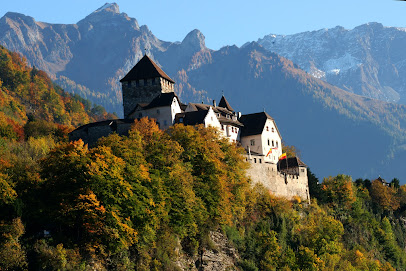
Alte Rheinbrücke
Experience the breathtaking views and historical significance of the Alte Rheinbrücke, a must-see bridge in the heart of Sevelen, Switzerland.
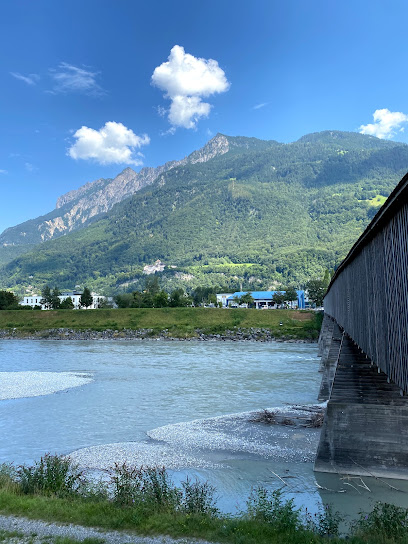
Rheinpark Stadium
Experience the thrill of live sports and events at Rheinpark Stadium in Vaduz, Liechtenstein, surrounded by breathtaking Alpine views.
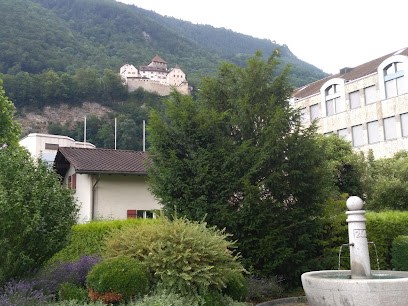
Kunstmuseum Liechtenstein
Explore contemporary art at Kunstmuseum Liechtenstein, a stunning architectural masterpiece in the heart of Vaduz, showcasing diverse exhibitions and local culture.
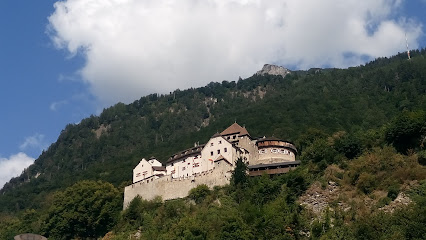
Brasserie Burg
Discover Brasserie Burg in Vaduz for a delightful culinary experience featuring gourmet burgers and Italian specialties in a cozy atmosphere.
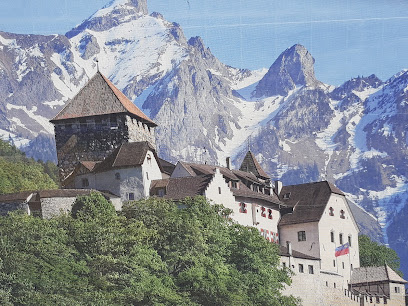
Liechtensteinisches LandesMuseum
Explore Liechtenstein's vibrant history and culture at the Liechtensteinisches LandesMuseum in Vaduz, where art meets heritage.
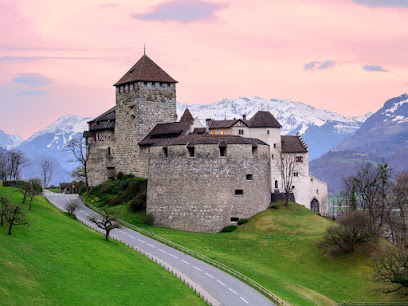
Postmuseum Vaduz
Explore the captivating history of postal services and cultural heritage at Postmuseum Vaduz, a must-visit for history enthusiasts in Liechtenstein.
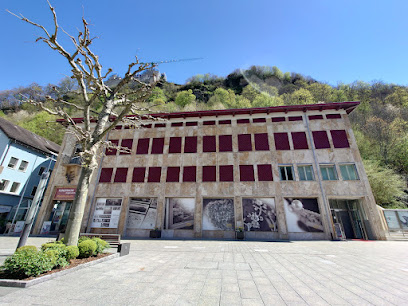
Hotel Vaduzerhof
Experience the best of Vaduz at Hotel Vaduzerhof, where comfort meets culture in the heart of Liechtenstein.
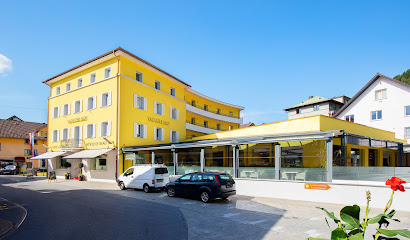
Cellars of the Prince of Liechtenstein
Explore the exquisite Cellars of the Prince of Liechtenstein in Vaduz, where top-quality wines meet a rich cultural experience in a breathtaking setting.
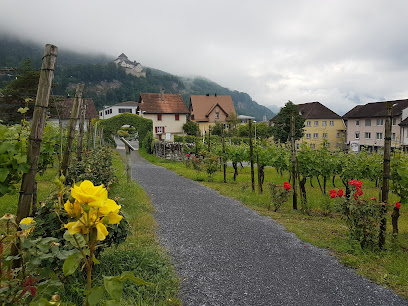
Red House, Vaduz
Explore the Red House in Vaduz, a stunning historical landmark that showcases the architectural beauty and rich history of Liechtenstein.
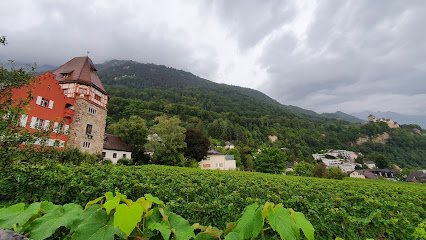
Vaduz Town Hall
Explore the architectural beauty and cultural significance of Vaduz Town Hall, the heart of Liechtenstein's government and a symbol of its rich heritage.
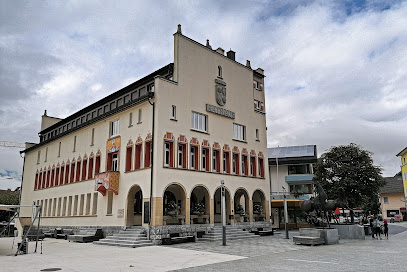
Unmissable attractions to see
Heididorf
Experience the enchanting world of Heidi in the Swiss Alps. A charming village that brings Johanna Spyri's beloved story to life.
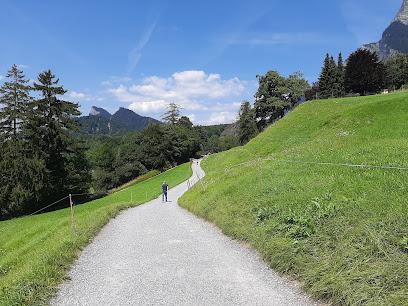
Abbey of Saint Gall
Explore a UNESCO World Heritage Site: the Abbey of Saint Gall, a Baroque masterpiece with a rich history and stunning library.
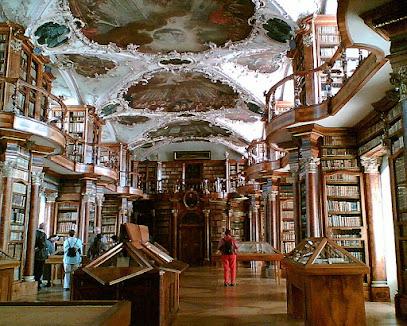
Wildpark Feldkirch
Discover Vorarlberg's wildlife at Wildpark Feldkirch: A free, family-friendly park with scenic trails, diverse animals, and a charming playground.

Seebühne Bregenz
Experience world-class opera and musicals on a floating stage with stunning views of Lake Constance and the Alps at Seebühne Bregenz.
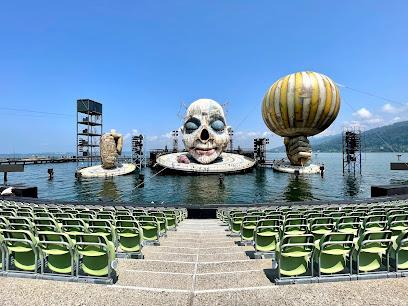
Appenzeller Schaukäserei
Discover the secrets of Appenzeller cheese at this interactive dairy, blending tradition and taste in the heart of Appenzellerland.

Bregenzer Festspiele
Experience the breathtaking Bregenzer Festspiele, where stunning operatic performances meet the serene beauty of Lake Constance in Austria.
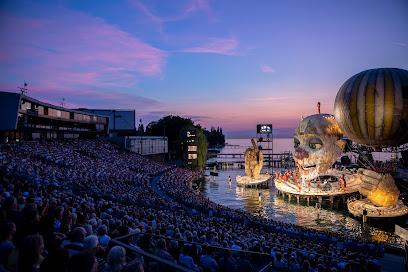
Aescher - Guesthouse on the mountain
Discover a historic cliffside guesthouse in the Swiss Alps, offering breathtaking views and traditional Swiss hospitality in a unique setting.
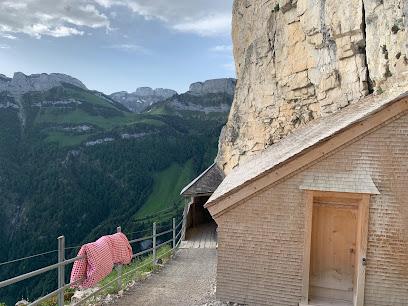
St. Gallen Cathedral
Explore St. Gallen Cathedral, a stunning Baroque masterpiece and UNESCO World Heritage site with rich history and intricate artistry.
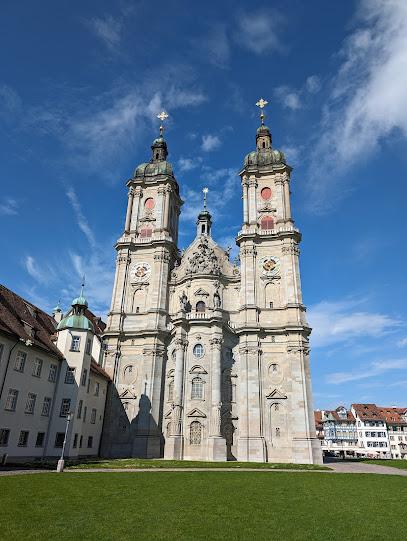
Pfänderbahn
Ascend to breathtaking panoramic views of Lake Constance and the Alps via this iconic Bregenz cable car. A must-see destination!
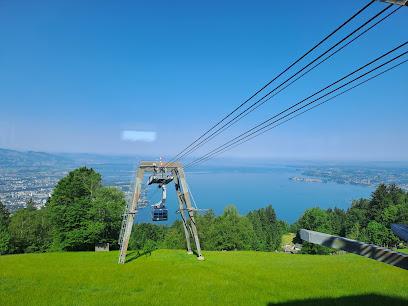
Mangturm
Explore Lindau's iconic Mangturm: a medieval watchtower turned charming landmark with stunning Lake Constance views.
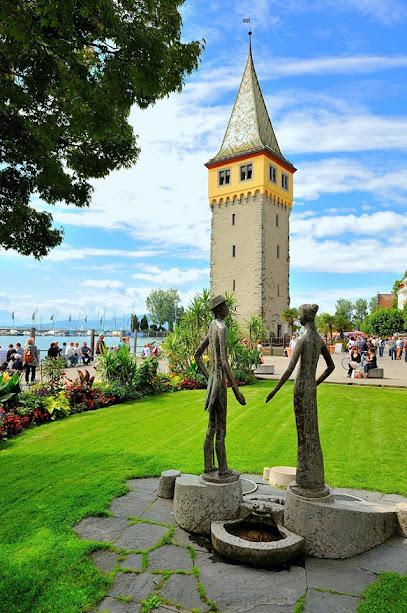
Caumasee
Discover the turquoise waters of Caumasee, a stunning alpine lake near Flims, Switzerland, perfect for swimming, hiking, and relaxation.
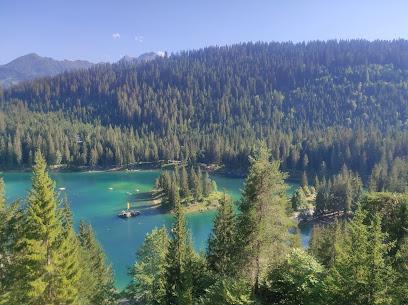
Schattenburg
Explore Schattenburg Castle in Feldkirch: a medieval fortress with a rich history, museum, and stunning views of Vorarlberg.
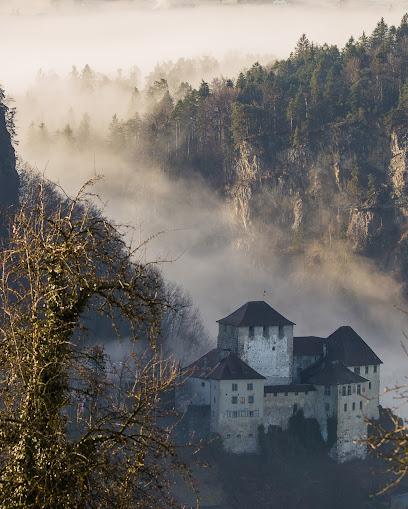
Talstation Luftseilbahn Wasserauen-Ebenalp AG
Ascend to Ebenalp via Wasserauen's cable car for breathtaking Swiss Alpstein views, hiking, and the iconic Aescher mountain inn.
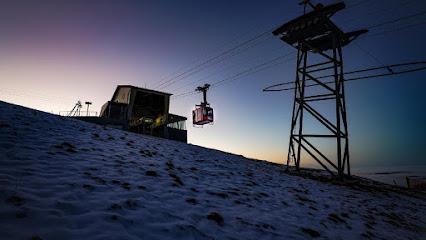
Burg Gutenberg
Discover the medieval charm of Burg Gutenberg in Balzers, a stunning castle that offers breathtaking views and rich cultural experiences for all visitors.
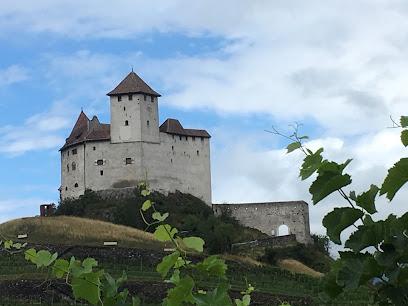
Seerenbach Falls
Experience the majestic Seerenbach Falls, Switzerland's second-highest waterfall, with stunning lakeside views and family-friendly hiking trails.
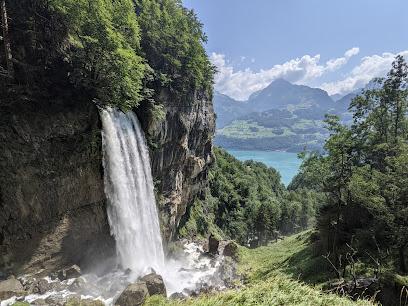
Essential places to dine
McDonald's Vaduz
Experience global flavors with local flair at McDonald's Vaduz - where fast food meets Liechtenstein hospitality.
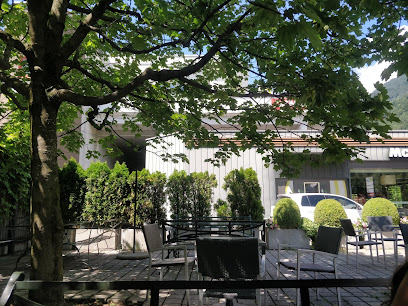
New Castle
Experience the culinary excellence at New Castle in Vaduz—where local flavors meet international cuisine in a charming setting.
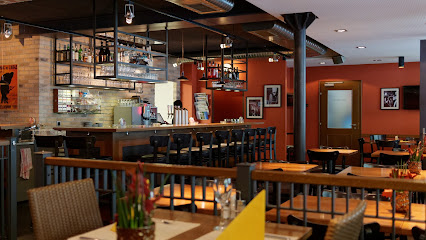
Park Hotel Sonnenhof
Discover unparalleled luxury and exquisite cuisine at Park Hotel Sonnenhof in Vaduz, Liechtenstein – where elegance meets breathtaking views.

Brasserie Burg
Discover Brasserie Burg in Vaduz: where modern dining meets traditional flavors in a warm and inviting atmosphere.
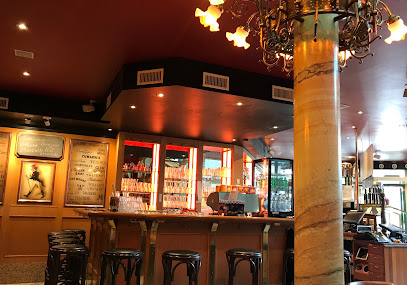
Berggasthaus Masescha
Discover culinary delights at Berggasthaus Masescha in Triesenberg, where stunning views meet delicious local cuisine.
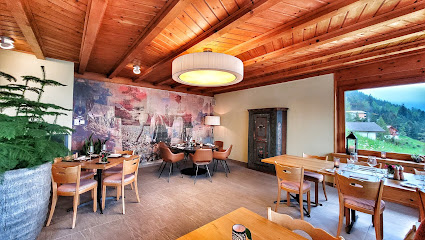
Schlössle Mahal
Discover authentic Indian flavors at Schlössle Mahal in Vaduz - where culinary traditions meet modern elegance.
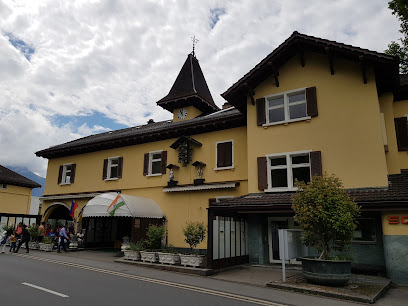
Subway Vaduz
Discover fresh sandwiches at Subway Vaduz – perfect for tourists seeking quick bites in the heart of Liechtenstein's capital.
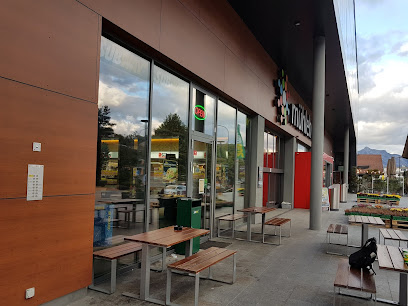
Landgasthof Au
Discover authentic Liechtenstein flavors at Landgasthof Au - where tradition meets culinary excellence in Vaduz.
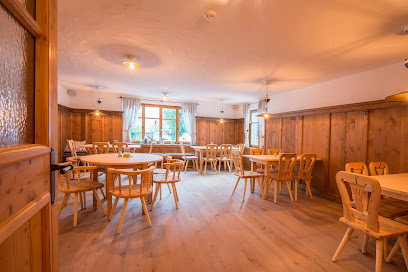
Restaurant Forum
Savor the authentic flavors of Switzerland at Restaurant Forum in Schaan, where every meal is a delightful culinary adventure.
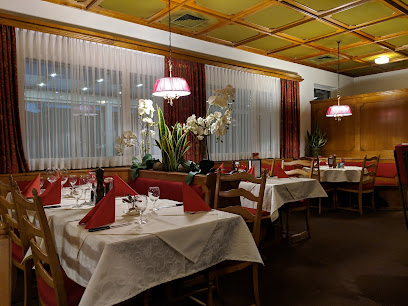
Kainer
Discover Kainer in Triesenberg - where local flavors meet modern cuisine in a cozy gastropub setting.
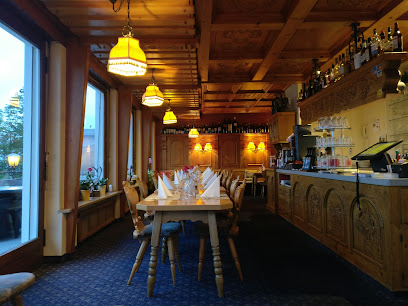
Restaurant Amarone
Experience authentic Italian cuisine at Restaurant Amarone in Vaduz – where every meal is crafted with passion and served with warmth.
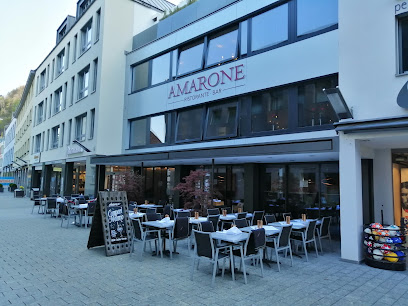
Red Mango Thai Takeaway
Discover the vibrant tastes of Thailand at Red Mango Thai Takeaway in Triesen, where each dish tells a story of flavor and tradition.
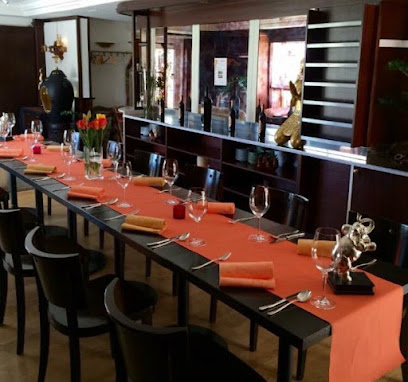
Torkel
Experience authentic Swiss cuisine at Torkel in Vaduz – where tradition meets flavor amidst stunning landscapes.
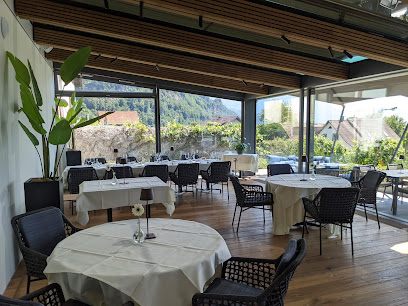
made-in-italy.li
Savor authentic Italian cuisine at Made in Italy - where every meal is a celebration of flavor and tradition.
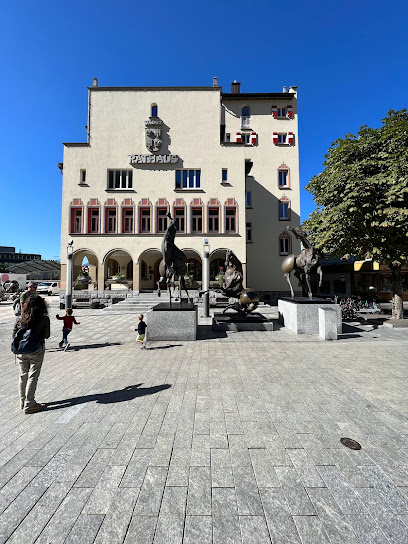
Cellars of the Prince of Liechtenstein
Experience exquisite wines and culinary delights at the Cellars of the Prince of Liechtenstein – a top tourist attraction in Vaduz.
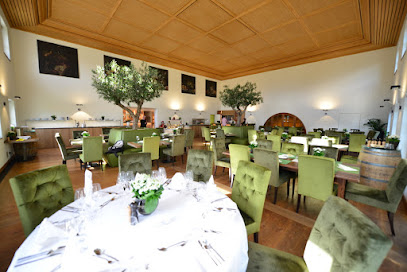
Markets, malls and hidden boutiques
HUBER - Fine Watches & Jewellery - Weisser Würfel
Explore luxury at Huber - Fine Watches & Jewellery in Vaduz, where exquisite timepieces and elegant jewelry await discerning shoppers seeking timeless elegance.
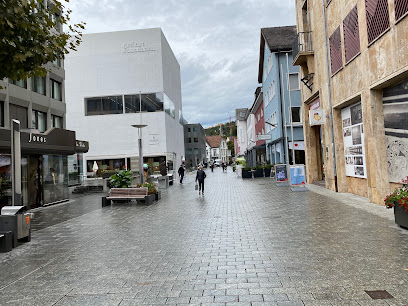
Hoi Liechtenstein - Souvenir Boutique
Explore Hoi Liechtenstein for unique souvenirs, local wines, and delightful gifts celebrating the culture of this beautiful principality.
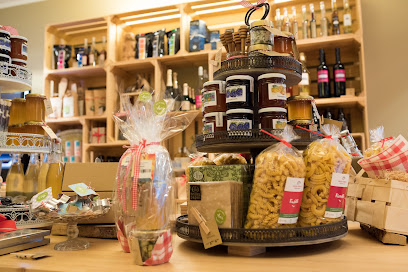
HUBER World of Watches
Explore the exquisite world of horology at HUBER World of Watches, Vaduz's premier destination for luxury timepieces and exceptional craftsmanship.
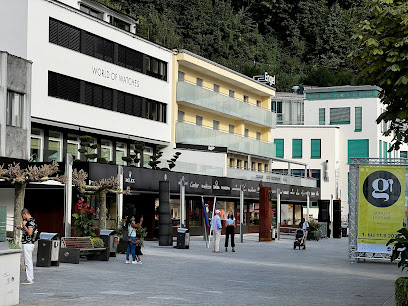
Mühleholzmarkt
Explore Mühleholzmarkt, Vaduz: Your premier shopping destination for local delights and vibrant experiences in the heart of Liechtenstein.
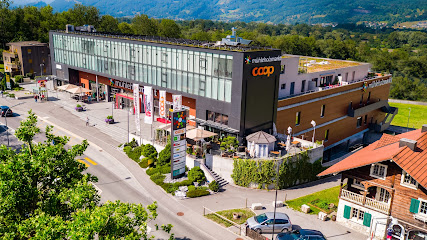
Spielplus Anstalt
Experience the joy of play at Spielplus Anstalt, Vaduz's charming toy store, offering unique toys and games for all ages in a delightful setting.
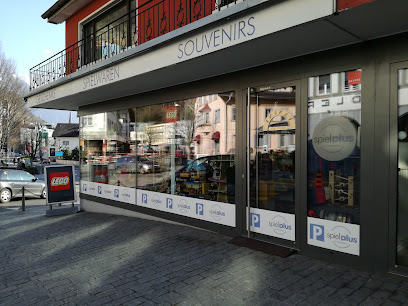
Bärgwelten
Explore the eclectic mix of fashion, accessories, and local liquors at Bärgwelten, Vaduz's premier shopping destination.
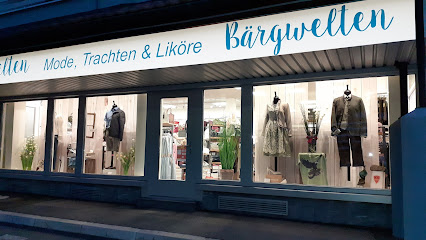
Vip's Men's Fashion
Explore the elegance of men's fashion at Vip's in Vaduz—where quality meets style in the heart of Liechtenstein.
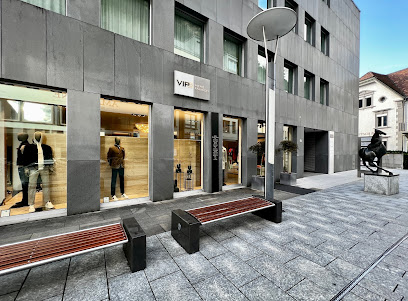
Central Plaza
Explore the charm of Central Plaza in Vaduz, your go-to gift shop for unique souvenirs and exquisite watches in Liechtenstein.
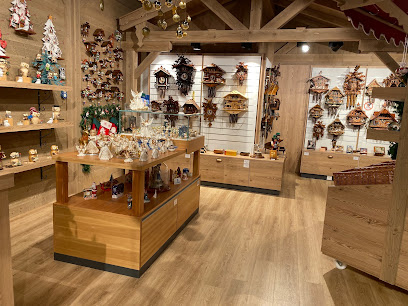
Greber AG
Explore Greber AG in Vaduz for a delightful mix of home goods, kitchen supplies, and a cozy coffee shop experience.
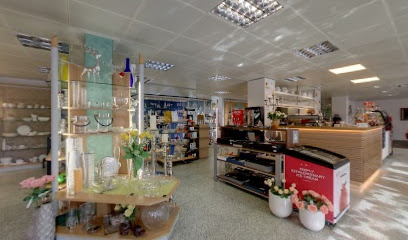
Herzog Loibner - Schmuck & Uhren
Discover exceptional craftsmanship at Herzog Loibner, Vaduz's premier destination for fine jewelry and exquisite watches in Liechtenstein.
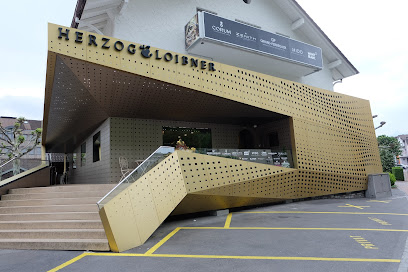
Dolce AG
Experience the finest selection of artisanal chocolates and unique gifts at Dolce AG in Vaduz, where every treat tells a story of local craftsmanship.
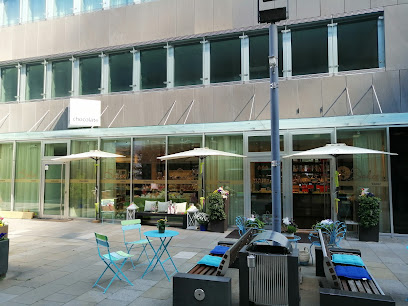
Ospelt Uhren & Schmuck AG
Explore Ospelt Uhren & Schmuck AG in Vaduz for exquisite watches and jewelry, where craftsmanship meets luxury in a captivating shopping experience.
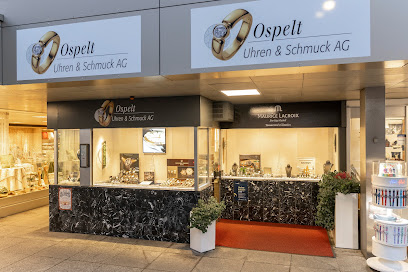
HUBER World of Beauty
Experience the ultimate in beauty and relaxation at HUBER World of Beauty, your go-to cosmetics store and spa in Vaduz.
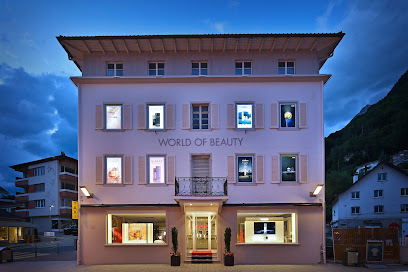
Marionnaud Parfumeries
Explore the finest selection of perfumes at Marionnaud Parfumeries in Vaduz, where each scent tells a story and every visit is an experience.
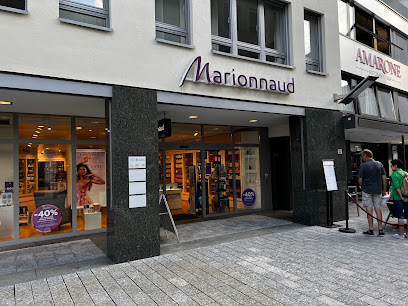
Dunja A. Sprenger - Jones Vaduz
Explore the stylish world of Dunja A. Sprenger in Vaduz - where local charm meets contemporary fashion excellence.
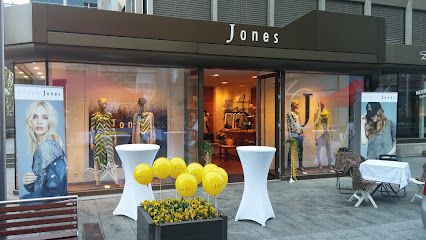
Essential bars & hidden hideouts
New Castle
Discover New Castle in Vaduz for an authentic dining experience with local flavors and exceptional service, perfect for discerning travelers.
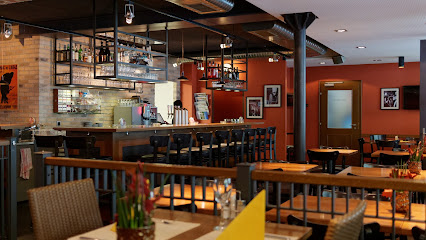
Brasserie Burg
Experience the best of Liechtenstein's culinary delights at Brasserie Burg, where local ingredients meet international flavors in a charming setting.
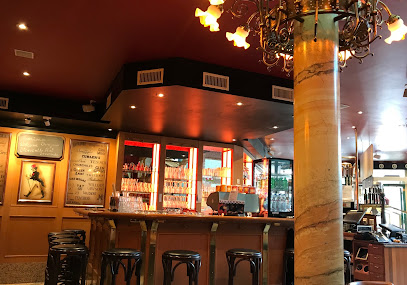
Restaurant Amarone
Experience the vibrant flavors of Italian cuisine at Restaurant Amarone, where every meal is a celebration of culinary artistry in Vaduz.
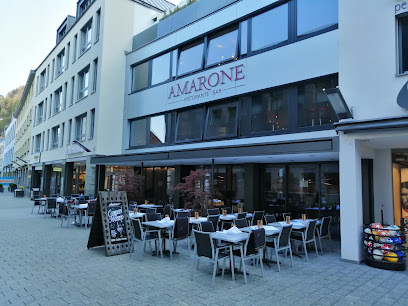
Adler
Experience authentic Swiss cuisine at Adler in Vaduz, where traditional flavors meet a cozy atmosphere for an unforgettable dining experience.
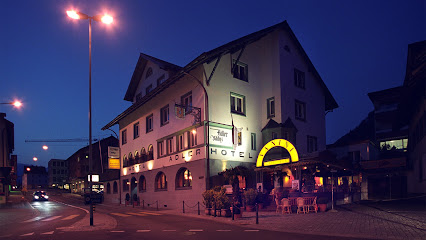
CAFE im kunstmuseum
Experience the fusion of art and gastronomy at Café im Kunstmuseum in Vaduz, where every bite is a masterpiece amidst stunning contemporary art.
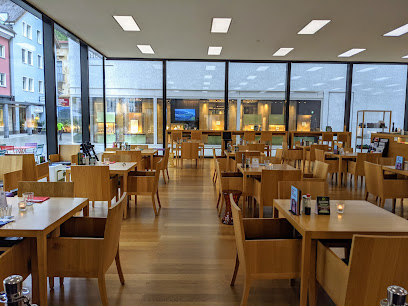
Esquire Bar.Bistro
Discover the vibrant flavors and cozy ambiance at Esquire Bar.Bistro in Vaduz, a top destination for food and drink enthusiasts.
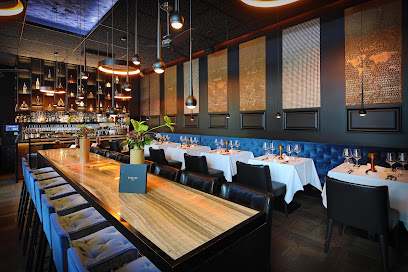
Hotel-Gasthof Löwen
Discover the charm of Liechtenstein at Hotel-Gasthof Löwen, where local cuisine meets warm hospitality in the heart of Vaduz.
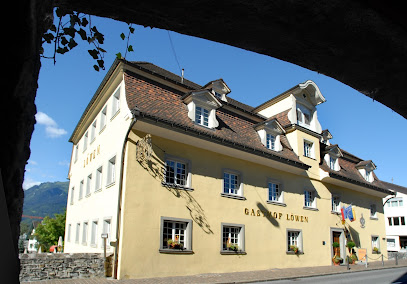
Black Pearl Bar
Discover the vibrant nightlife of Schaan at the Black Pearl Bar, where innovative cocktails meet a lively atmosphere.
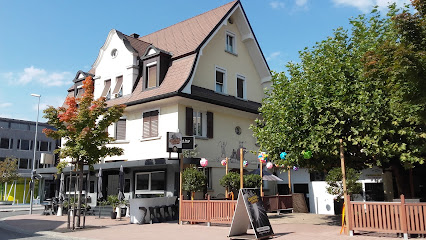
Zwei Bar
Unwind at Zwei Bar, Vaduz's lively spot for crafted cocktails, local beers, and a warm atmosphere perfect for socializing after a day of exploration.
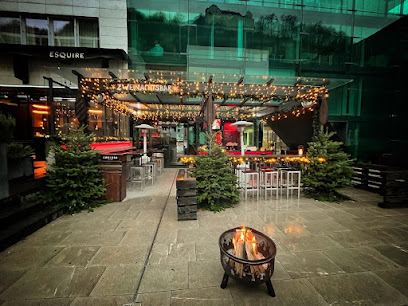
Altenbach Restaurant & Bar
Discover the culinary excellence of Altenbach Restaurant & Bar in Vaduz, where traditional flavors meet modern dining in an inviting atmosphere.
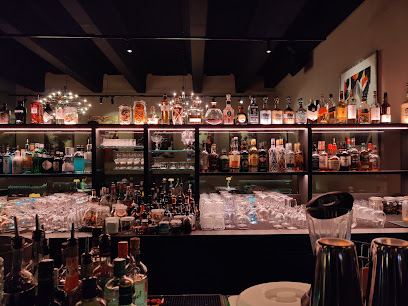
CENTRUM RESTAURANT & BAR, Vaduz
Experience the flavors of Liechtenstein at Centrum Restaurant & Bar in Vaduz, where local cuisine meets vibrant atmosphere.
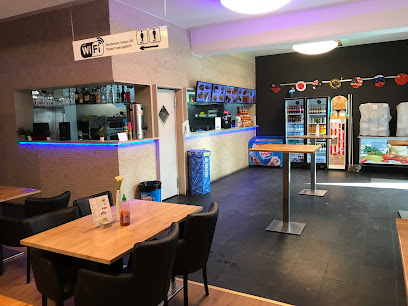
Take 5 Vaduz
Experience the vibrant nightlife of Triesen at Take 5 Vaduz, where exceptional drinks and a lively atmosphere await you.
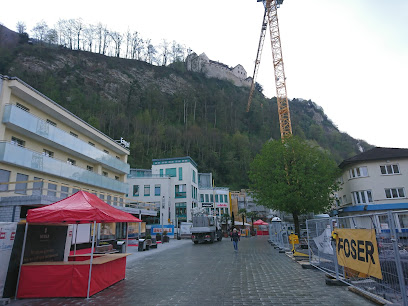
BarDuz
Discover the cozy charm of BarDuz, a delightful café in Vaduz, offering delicious refreshments and a perfect respite for tourists.
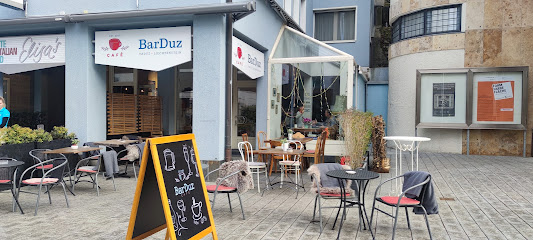
Lömagarta
Discover Lömagarta, Vaduz's premier beer garden offering a unique selection of local brews and delicious Swiss cuisine in a charming outdoor setting.
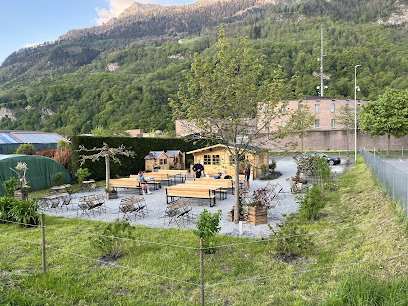
Local Phrases
-
- HelloHallo
[hah-loh] - GoodbyeAdieu
[ah-dyoo] - YesJa
[yah] - NoNein
[nyne] - Please/You're welcomeBitte
[bee-teh] - Thank youDanke
[dahn-keh] - Excuse me/SorryEntschuldigung
[ent-shool-dee-goong] - How are you?Wie geht es dir?
[vee gayt es deer] - Fine. And you?Gut. Und dir?
[goot oont deer] - Do you speak English?Sprechen Sie Englisch?
[shpre-khen zee eng-leesh] - I don't understandIch verstehe nicht
[eekh fair-shtay-eh nikht]
- HelloHallo
-
- I'd like to see the menu, pleaseIch möchte die Speisekarte sehen, bitte
[eekh mehrkhte dee shpy-zuh-kahr-teh zay-en, bee-teh] - I don't eat meatIch esse kein Fleisch
[eekh ess-eh kine flysh] - Cheers!Prost!
[prohst] - I would like to pay, pleaseIch würde gerne zahlen, bitte
[eekh vur-deh gehr-neh tsah-len, bee-teh]
- I'd like to see the menu, pleaseIch möchte die Speisekarte sehen, bitte
-
- Help!Hilfe!
[heel-fuh] - Go away!Geh weg!
[geh vehg] - Call the Police!Rufen Sie die Polizei!
[roo-fen zee dee poh-lee-tsay] - Call a doctor!Rufen Sie einen Arzt!
[roo-fen zee iyn-en ahrts] - I'm lostIch habe mich verirrt
[eekh hah-beh meekh fair-eert] - I'm illIch bin krank
[eekh been krahngk]
- Help!Hilfe!
-
- I'd like to buy...Ich möchte kaufen...
[eekh mehrkhte kow-fen] - I'm just lookingIch schaue nur
[eekh shou-eh noor] - How much is it?Wie viel kostet das?
[vee feel kohs-tet dahs] - That's too expensiveDas ist zu teuer
[dahs ist tsoo toy-er] - Can you lower the price?Können Sie den Preis senken?
[kehr-nen zee den prees zehn-ken]
- I'd like to buy...Ich möchte kaufen...
-
- What time is it?Wie spät ist es?
[vee shpayt ist es] - It's one o'clockEs ist ein Uhr
[es ist iyn oor] - Half past (10)Halb zehn
[halb tsayn] - MorningMorgen
[mohr-gen] - AfternoonNachmittag
[nahkh-mit-tahk] - EveningAbend
[ah-bent] - YesterdayGestern
[gehs-tern] - TodayHeute
[hoy-tuh] - TomorrowMorgen
[mohr-gen] - 1Eins
[eyns] - 2Zwei
[tsvay] - 3Drei
[drey] - 4Vier
[feer] - 5Fünf
[foonf] - 6Sechs
[zeks] - 7Sieben
[zee-ben] - 8Acht
[ahkt] - 9Neun
[noyn] - 10Zehn
[tsayn]
- What time is it?Wie spät ist es?
-
- Where's a/the...?Wo ist ein/der...?
[woh ist iyn/dehr] - What's the address?Was ist die Adresse?
[vahs ist dee ah-dreh-suh] - Can you show me (on the map)?Können Sie mir zeigen (auf der Karte)?
[kehr-nen zee meer tsay-gen (ouf dehr kar-teh)] - When's the next (bus)?Wann kommt der nächste (Bus)?
[vahn kohmt dehr nekh-stuh (boos)] - A ticket (to ....)Eine Fahrkarte (nach ....)
[ey-nuh fahr-kahr-teh (nahkh)]
- Where's a/the...?Wo ist ein/der...?
History of Vaduz
-
The region where Vaduz sits today was originally settled by the Celts and later by the Romans. The earliest written records of Vaduz date back to the 12th century, when it was part of the Holy Roman Empire. The town's strategic location along the Rhine River made it an important site for trade and settlement.
-
Vaduz Castle, perched on a hill overlooking the town, is a symbol of Liechtenstein's rich history. Built in the 12th century, it has been the residence of the ruling Princes of Liechtenstein since 1712. The castle underwent significant renovations in the 20th century and remains a private residence, though it is visible from various vantage points around the town.
-
In 1719, Vaduz became the capital of the newly established Principality of Liechtenstein. The principality was created when the Holy Roman Emperor Charles VI united the counties of Vaduz and Schellenberg, granting the new state its name in honor of Anton Florian of Liechtenstein, a loyal supporter of the emperor.
-
During the Napoleonic Wars, Liechtenstein was occupied by French troops. However, it managed to maintain its independence through diplomatic efforts and strategic alliances. The Congress of Vienna in 1815 reaffirmed Liechtenstein's sovereignty, and Vaduz continued to grow as the administrative center of the principality.
-
Vaduz and the rest of Liechtenstein underwent significant economic transformation in the 20th century. Moving from an agrarian economy to a financial and industrial hub, Vaduz became home to numerous banks, investment companies, and multinational corporations. This economic boom led to substantial urban development and modernization of the town.
-
Vaduz boasts several important cultural institutions, including the Liechtenstein National Museum and the Kunstmuseum Liechtenstein. These museums house collections that showcase the history, art, and culture of the region. Additionally, the town hosts various cultural events and festivals throughout the year, reflecting its vibrant community life.
-
Today, Vaduz is a blend of historical charm and modern sophistication. As the capital of one of the world's smallest yet wealthiest countries, it offers visitors a unique experience with its picturesque landscapes, historical landmarks, and cultural offerings. The town's commitment to preserving its heritage while embracing progress makes it a fascinating destination for travelers.
Vaduz Essentials
-
Vaduz, the capital of Liechtenstein, is easily accessible from neighboring countries. The closest major airport is Zurich Airport in Switzerland, approximately 115 kilometers away. From Zurich, you can take a train to Sargans or Buchs, where you can catch a bus or taxi to Vaduz. Alternatively, you can drive, which takes about 90 minutes. Public transportation options are efficient and well-connected.
-
Vaduz is a small and compact city, making it easy to explore on foot. For longer distances, the local bus network operated by LIEmobil is reliable and efficient. Taxis are available but can be quite expensive. Renting a bike is also a popular option for getting around. Driving is straightforward, but parking can be limited in the city center.
-
The official currency of Liechtenstein is the Swiss Franc (CHF). Major credit cards are widely accepted in hotels, restaurants, and shops. ATMs are readily available throughout Vaduz, and many establishments also accept Euros, although change will usually be given in Francs. It's advisable to carry some cash for smaller purchases and in rural areas.
-
Vaduz is known for its low crime rates and is generally very safe for tourists. Petty crimes such as pickpocketing are rare but can occur, so remain vigilant in crowded places. There are no specific high-crime areas targeting tourists. Basic precautions, such as not leaving valuables unattended and being aware of your surroundings, are recommended.
-
In case of an emergency, dial 112 for immediate assistance. Vaduz has modern medical facilities and pharmacies where you can get necessary medications. It is highly recommended to have travel insurance that covers medical emergencies. The local police and emergency services are prompt and efficient.
-
Fashion: Do dress smartly and comfortably. Casual attire is generally acceptable, but avoid overly casual outfits like beachwear in the city center. Religion: Do respect religious sites by dressing modestly and speaking quietly. Public Transport: Do validate your ticket before boarding and be courteous to other passengers. Don't eat or drink on public transport. Greetings: Do greet people with a firm handshake and maintain eye contact. Eating & Drinking: Do try local delicacies and enjoy the local wines. Don’t leave a large tip; a small amount is appreciated but not expected.
-
To experience Vaduz like a local, visit the weekly markets where you can buy fresh produce and local specialties. Take a leisurely walk along the Rhine River and enjoy the scenic views. Engaging with locals in small cafes or wine bars can provide insights into the culture and history of Vaduz. Don’t miss visiting the Vaduz Castle, which offers panoramic views of the city and surrounding Alps.
Trending Landmark in Vaduz
-
Vaduz Castle
-
Burg Gutenberg
-
Kathedrale St. Florin
-
Liechtenstein Center
-
Vaduz Citytrain AG
-
Alte Rheinbrücke
-
Rheinpark Stadium
-
Kunstmuseum Liechtenstein
-
Brasserie Burg
-
Liechtensteinisches LandesMuseum
-
Postmuseum Vaduz
-
Hotel Vaduzerhof
-
Cellars of the Prince of Liechtenstein
-
Red House, Vaduz
-
Vaduz Town Hall
Nearby Cities to Vaduz
-
Things To Do in Schaan
-
Things To Do in Triesenberg
-
Things To Do in Eschen
-
Things To Do in Gamprin
-
Things To Do in Balzers
-
Things To Do in Mauren
-
Things To Do in Schellenberg
-
Things To Do in Ruggell
-
Things To Do in Dornbirn
-
Things To Do in Arosa
-
Things To Do in Bregenz
-
Things To Do in Davos
-
Things To Do in St. Anton am Arlberg
-
Things To Do in St. Moritz
-
Things To Do in Zurich









